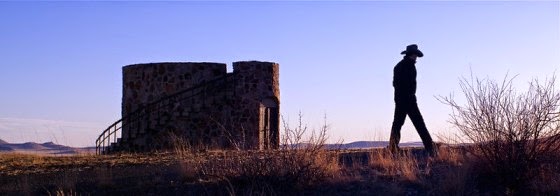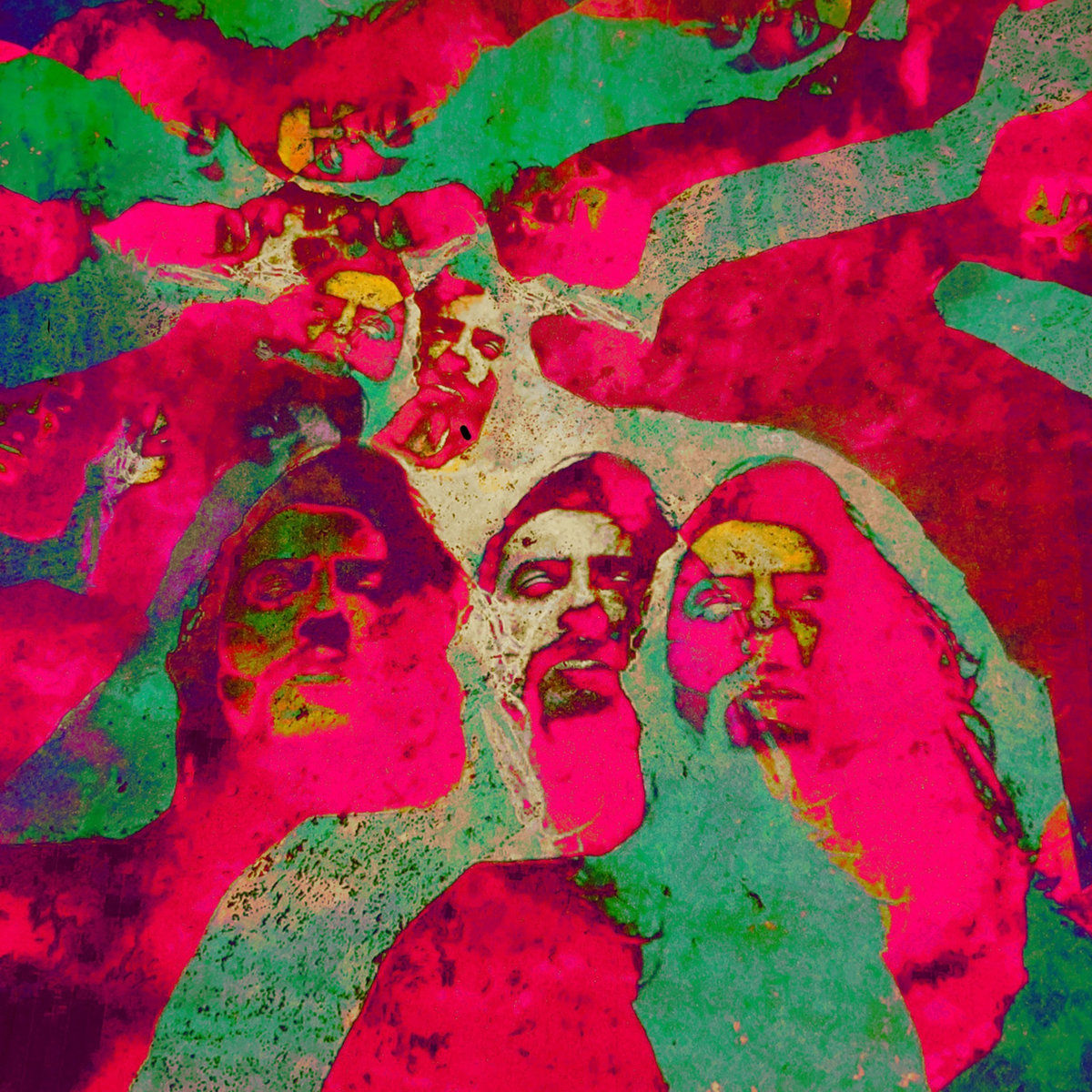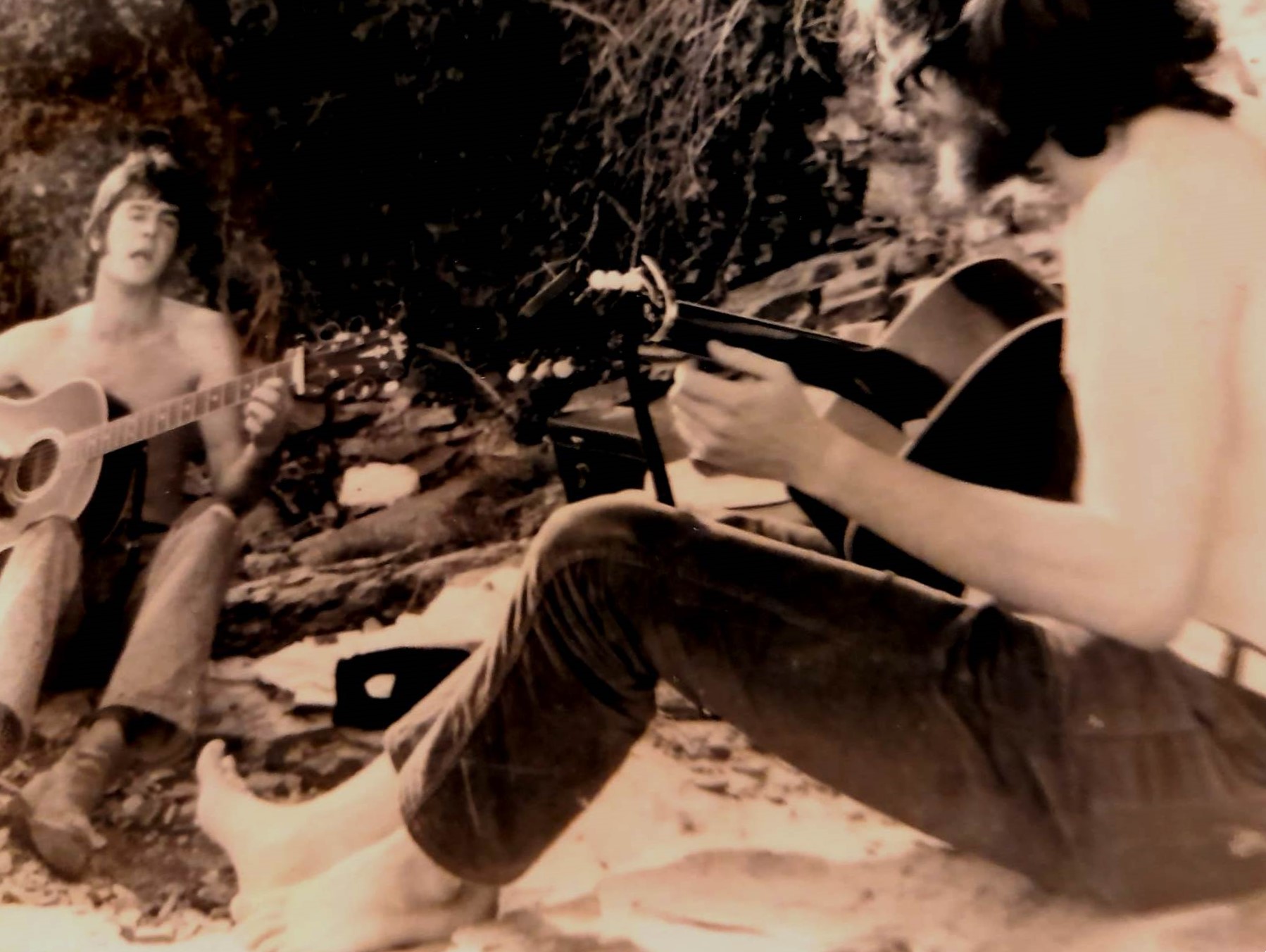Mark Deutrom interview
Dark atmospheric voyages into the abyss of the human mind,
that’s as an apt a way as any to describe multi-talented rock veteran Mark
Deutrom’s solo work. A mixture of
instrumental and vocal tracks it’s the culmination of much of what Deutrom has
worked to perfect over the last decade or so, following an illustrious career
as a producer and a long stint as the bass player in stoner rock, punk grunge
mainstays the Melvins for several years.
Deutrom’s solo career is a varied collection of a vast array of genres
and influences that have convalesced into some amazing atmospheric psychedelic
explorations of the human psyche I’ve ever heard, running the gambit of emotion
and expression. His albums morph
seamlessly from tightly wound rocker cuts, with fuzz and distortion wailing
like souls trapped in hell one moment, feedback washing over itself like a
tidal wave on a rampage, into an almost prog acid jazz feel, sparse guitar
echoing through psychedelic landscapes that glitter with a life of their own. Deutrom even pokes his head out on occasion,
delivering surprisingly beautiful and haunting vocals to round out a sound that
seems to have no limits or boundaries, stretching from the heart of the earth
to the darkest reaches of the cosmos and raging infernos at the hearts of the
stars that burn there. Deutrom’s music
career is as interesting and varied as the sounds he’s able to conjure and
after a stint and some recording with a band in 2011, he’s formed a new band,
BellRinger and is working on writing and prepping for recording on that
project, as well as his usual production acrobatics and keeping his solo career
rolling at a steady pace. Between
everything, Mark took some time to look back over his history in the industry
and deliver a really cool retrospective on some of the amazing things he’s
accomplished, crazy places he’s been and some clues as to where he’s hoping to
head from here. So, read on for some
serious enlightenment, and don’t say I never gave ya nothing!
pictures: http://markdeutrom.tumblr.com
are released under your own name for a reason, unlike a lot of people who have
bands that are simply their name. What I
don’t know is if you have any core of people that you usually work with or
anything, or if you like to handle that on a case by case basis as for what’s
needed and in what situation?
been to work intensively with just a drummer during preproduction and tracking,
and then do the rest myself with occasional overdubs from someone else. I’ve been lucky to have had Chad Bamford mix
my last two solo projects and also track the first one. It’s great to just hand over a project to a
completely objective set of ears after having lost all objectivity with it…
steadily releasing material for a while now under your own name and you’ve
obviously been involved in some bands in the past! Do you have any other groups that you’re
working with at this point or any side projects going at this point?
ago called BellRinger. We are just
getting ready to start playing out. This
will be a touring, recording and working band.
We’ll play some of my solo material in the band, but most of it will be
written collectively. We’re a party
band! It’s a rock band designed to drink
heavily to and have a good time. I’m
always talking to bands about the possibility of working on projects with them
as producer. I produced an Austin band
called The Well a while back and their record should be out in September. It’s Sabbath/Blue Cheer style doom with a
touch of psychedelia. I think people
will like; people who like that kind of thing, that is.
originally from London but grew up in El Paso, Texas after your family
moved. How old were you when you all
moved? What was the local music scene like
there when you were growing up? Do you
feel like that scene played a large role in shaping your musical tastes or the
way that you perform at this point?
step dad being in the Armed Forces, but I left the UK at around five and ended
up in Texas around ten. The so called
scene there was effectively non-existent.
Cover bands playing in bars. This
is the first half of the 70’s we’re talking about. Of course, there were a lot of great bands touring
at that point, and some even stopped in El Paso, but for the most part it was
figuratively, and literally, a musical desert.
The actual environment was probably more influential than any particular
musical thing. I would spend summers
with my grandparents in the UK, so I was fortunate to get exposure to all that
crazy stuff like glam, and also punk when it started, before everyone else in
West Texas did.
like when you were growing up? Were
either your parents or any of your close relatives musicians or extremely
involved/interested in music when you were growing up?
little, but that was it. Step dad played
the guitar a little and showed me a couple of chords as a kid. They weren’t that interested in music, apart
from buying a record here and there or having the radio on in the car.
your first real exposure to music?
England. I also had a couple of 7″s
that had Vivian Leigh reading Beatrix Potter stories. The music on those was crazy and fascinating
to me. I wanted to listen to them again
and again. I’ll probably seek them out
on eBay at some point.
pick a single moment, a moment that seemed to change everything for you and
opened your eyes to the infinite possibilities that music presents, what would it
be?
five. That was mind blowing, and it’s
still my favorite Beatles record as a result.
My mother drove me to the cinema, and she watched me walk up to the
ticket booth and buy a ticket, and then she drove off! It seems incredible, but I guess she didn’t
want to go, or had something else to do.
That would probably be illegal now, but it seemed completely normal to me. It must have been a weekday since I was the
only one in there. It was an
overwhelming experience. Not long after,
I made her take me to the record shop to buy some Beatles singles. The early Beatles material has a very
particular kind of magical quality to it, and George Martin was a genius in
capturing that. It’s still infectious. The timing was right and the music was
perfect for the place and the moment. It
connects beyond music, and that’s what makes it timeless. I’ll be picking up the new Criterion reissue
of that for sure.
decide that you wanted to start writing and performing your own music? What brought that decision about for you?
out how to do it, has a complete abyss of a learning curve between them. Basically, you just have to start and see if
have any inclination toward expression in your chosen medium. It really wasn’t a choice for me. I was just driven to expressing myself through
a loud guitar like ten million other teenagers.
your first instrument? What was that and
how did you get it?
so. I had to take classical guitar
lessons to show that I could play “properly” before my parents would
cough up for an electric. After a while,
when I could sufficiently demonstrate some skill, my parents brought a used Vox
electric from a neighbor, and that was my first electric.
You’ve been
involved with several bands over the years, Clown Alley and The Melvins both
spring to mind, but what brought about the decision to move into making music
under your own name? Can you talk a
little bit about how that came about?
I didn’t have a band, but I did still have a name! It just made it easier than coming up with a band
name to represent myself. I didn’t
require that kind of distancing from myself either. I figured it worked for Tom Jones and Todd
Rundgren, so why not me?
located at these days?
music scene like where you’re at right now?
World”. There are a million
bands. Everybody in town is in a band,
or three. The town is very supportive of
music generally speaking, and it’s a point of pride having SXSW and ACL
etcetera. There’s even a health co-op
for musicians here to assist them if they need it. There’s a huge variety of music here, and since
Austin is going through a boom cycle there are more musicians moving here all
there time. My drummer moved here from
Dayton, Ohio last year, so he’s one of them.
It’s probably a unique situation in the US, and is very vibrant. Supposedly one hundred people a day move
here. They’re all sitting on the freeway
staring into phones, or lining up for food like refugees at a camp.
involved in the local scene in your opinion?
Do you either book or attend a lot of local music or anything?
something out if it’s recommended to me.
If friends come to town, I’ll go out to say hello. There are five hundred bands playing out
every night here. It’s a tall order to
actively participate in that, and it’s also time consuming to say the least. The last three bands I’ve produced are Austin
bands, so there’s some good stuff out there if you want to find it. There are also a lot of good tacos and BBQ
out there, and it takes time to find that too.
scene played an integral role in the sound, history or evolution of your
music? I know you’ve live in both Austin
and London. Do you think you would be
making the same kind of music with out that kind of dual exposure to both sides
of the sea?
and some of that has seeped into what I do on a variety of different levels,
most obviously the sporting of quality headwear. What I do has a lot of different influences,
and if I had been sitting in one place, it probably wouldn’t have the same
quality, but who really knows?
Back in the 80’s I
know you were involved in the formation of Alchemy Records and worked on some
insanely killer albums including but not limited to The Melvins’ Gluey Porch
Treatments, The Rhythm Pigs self-titled album, and Sacrilege’s Party With God
but you split ways with them years ago and went on to work on some absolutely
awesome stuff since as well including another Melvins album and some sweet
Austin stuff like The Well. How involved
are you in recording and releasing music at this point? Are you involved in any labels or anything at
this point?
future. Currently, I’m working on my
next solo project, as well as a project for my new band. I’m also in talks with a few bands about
producing projects for them. I’m utterly
independent at this point. My projects
go through CD Baby, Bandcamp, and the physical materials are made by Rock is
Hell in Austria. I would love to get
with a label that I could have a long-term relationship with, but that
situation hasn’t presented itself.
Labels, I need a home! I promise
I’ll work hard and be responsible and not ask you for money for rehab. One of the plus sides of the digital revolution
has been that people like me who are completely independent can still manage to
get music to people who want it, even if they’re in Russia or Australia. The downside is the eternal struggle that
being self-financed entails, teamed of course with the fact that very few
people want to actually pay for music anymore.
has undergone several different permutations and drastically changed since you
started releasing stuff under your own name but at this point you seem to have
found your voice and while stuff’s never “the same” there’s definitely a
continuous thread, maybe a prevailing feeling that seems to connect your
work. How would you describe your music
in your own words to our readers who might not have heard you before?
levels, and is internally reflective and has a lot of weight, as well as
space. I like a lot of diversity and I
don’t have any rules about what I can or can’t do, although there probably
won’t be much reggae or rap coming out of me.
There’s a lot of melancholy and harshness that runs through my material,
but there’s also beauty, confusion, humor and anger, and also celebration. The elements that reflect the human condition
are what comprise the parameters within my work. Sonically, it ranges from maximum density to
nothingness. My musical influences are
from throughout the entirety of music, and are constantly shifting, forming,
and deconstructing.
little bit about your songwriting process for us? Do you handle writing all the aspects of your
music? I know you have drummers and
people come in and play different instruments but I don’t know how much of that
is planned out in your head beforehand and what’s spontaneously happening while
you’re in the process of recording and working with that material. How much of a role do other people play in
your songwriting process? Do you spend a
lot of time working stuff out before you enter the studio figuring out every
nook and cranny of a song? Or do you get
a good idea of what something’s going to sound like in your mind and then head
into the studio allowing for some room to change and evolve during the whole
process?
simply for economic reasons, and also my own sanity. There’s room for interpretation and
spontaneity, but I spend a great deal of time in the pre-production process
mapping where they are going to happen.
There’s somewhat of an aleatoric approach within those spaces to allow
for surprises and different directions to emerge, but I usually don’t have the
luxury to mess around in the studio too much.
There’s a strict framework that allows for elasticity. Hit record and see which version is the best,
or throw it away and move in a different direction. It’s pretty basic. If I hit a block, I might reach for Oblique
Strategies or even the I Ching. I might
flip a coin also. I don’t really have a
strict songwriting process. It’s a
mystery to me where it even comes from or how it happens. Sometimes I almost feel like a
bystander. How does it happen? Where does it come from? Who knows?
My new band has been writing some material together, and it’s been an
interesting process to assume a more passive role. Magically, a song begins to appear like an
entity materializing at a séance. Maybe
that means I’m not doing anything…
recording? I’m a musician myself and I
think that at least most of us can appreciate the whole process once you’re
finished and holding that finished version in your hands. But getting to that point, getting things
laid down and sounding like you want them to, especially when there are other
people involved, can be extremely difficult and trying to say the least. What’s it like recording for you and do you
enjoy it?
I came up through analog, and that has a particularly alchemical
resonance to it. It’s magnetic,
electrical and involves heat and current and gas. The whole thing is really a process of discovery
and making educated guesses, and that’s the interesting part. You might think you know what something is
going to sound like, but until you’re actually doing it, it remains intangible
and somewhat theoretical. The whole
thing is a process of magical workings as new realities unfold themselves. Really, you just have a pre-imagined
destination, and hopefully some fellow travelers that want to go to the same
place you do. Electricity, temperature
and atmospherics may have other ideas.
take a more DIY approach to recording where you handle a lot of the technical
aspects of recording and logistics and that kind of thing, or do you head into
a studio and let someone else helm the technical aspects of things so you can concentrate
more on just getting the sound that you have in your head committed to tape?
sound. I love the process of putting
together the mechanics of mic placement and choices, and combinations of amps
etcetera. Usually, I’m already thinking
about this stuff during pre-production with a band, so the refinement process
has already begun in my head at that point.
Once the sound is nailed for everything, I’ll usually defer to the
engineer for technical issues and suggestions and concentrate on what the band
is doing with their performances.
several albums but I’d like to concentrate on the stuff you’ve released the
past three years or so. In 2011 you
released The Value Of Decay on Rock is Hell Records with Southern Lord
Recordings in several different permutations and packages. Can you tell us a little bit about the
recording of the material for The Value Of Decay? Who all was involved and when was that
material recorded? Where was that
recorded at? What kind of equipment was
used?
having to whittle down a ton of material to end up with that. It was really finished in 2007 or so, and
didn’t end up on vinyl until 2011. There
was a digital release around that time, but I didn’t manage it as well as I
should have, so it fell down a hole. I
had done some demos at someone’s home studio in Austin called Tonehaus, and he
gave me a great deal on time, so I started working on it there. He had built these PC tower computers, and
they would start to shut down at points when the processing got too intense for
the system. He had a few nice converters
and mics, but he mainly did voiceovers and occasionally, some chamber
music. It was the first time I did a
completely digital recording. It’s a
different beast, to be sure but it’s just a different toolbox. The choices are more binary than analog,
figuratively and literally speaking. I
just got in the converted garage with the drummer Cully Symington and started
assembling the thing. Most of the drums
were done in a few days, and then I pieced it together over a couple of years
doing the rest myself. There’s a lot of
deeply personal and conceptual stuff in it, and there could have been more, but
it just needed to end, and so it did.
Chad Bamford’s mix for that made me realize I had had actually done a
pretty good job in that little place, since he managed to make it sound so
good. It was really challenging to do on
a number of levels. There’s a cornucopia
of formats that comprised it: everything from 4-track cassette to CD-R to
8/16/24 bit audio through horrible Behringer converters to pocket memo
recorders. Somehow it hangs together and
sounds pretty good. Mainly 60’s and 70’s
combo amps, and a good drummer! A little
while later, I did the entire drums tracks for another project that I haven’t
finished yet in there also. Cully did an
incredible job doubling all these crazy drum parts, and I still have it and am
working on it. It will be a real point
of departure from everything else, but it’s time will come. Maybe next year.
released a single-sided 12” limited to only like 200 copies, Ruckus Juice which
contained the soundtrack the Ruckus Juice animated video along with two other
songs, “Bo Diddley” and “Eat The Light”.
I don’t know about “Ruckus Juice”, but both “Bo Diddley” and “Eat The
Light” are on your Bandcamp page with the citation they were from a band you
had in 2011. Was that the same band
involved in The Value Of Decay or were those tracks part of something else
entirely that you were working on or involved with? Can you talk a little bit about the recording
of the material that made it onto the Ruckus Juice 12”?
band. All three of those tunes were done
in the same session. “Ruckus Juice” was
the soundtrack to the animated short my wife made for the band. We did a little bit of touring and a tiny
clip is up from a gig on my YouTube channel, but it didn’t work out. Corey Cottrell, the bassist from that band,
is in my new band now. There was no band
for Value Of Decay. It was just Cully
Symington and I doing it, with a couple of overdubs from some other people;
completely unrelated to County Bucks.
Brief Sensuality & Western Violence 12” for Rock is Hell in 2013 which is
two 12” slabs of seriously sweet instrumental psychedelia. When and where was the material for Brief
Sensuality & Western Violence recorded and who recorded that? Who all was involved in playing on that
record?
Recording Facility in Austin in December 2012.
I used a drummer named Aaron Lack who is also a trained multi-instrumentalist. Some of the music was fairly complicated, so
he was perfect. It was just him and me,
but I did hire a trumpet player for the solo on “Shaky Rabbit”. Aaron also played steel pan, toy piano, and
glockenspiel. We worked on it for around
nine months before we went in to do it.
you’re getting ready to release a 7” split single with The ASound for Tsuguri
Records. But other than the upcoming
split, do you have any other music in the works or on the horizon at this
point?
a tenth anniversary double coming out later this year, and I have an unreleased
track from the Brief Sensuality sessions on that. There’re a couple of other songs from those
sessions that will emerge at some point also.
This new band I have going will also get in the studio at the end of
August to work on an EP, but there are no plans in place for a release
yet. We’ll probably do four or five
tunes that we’re writing right now.
becoming a problem for people who don’t have a brick and mortar shop in their
town that can get the music that they’re looking for. I try and provide people with as many options
as I can for picking stuff up as I can.
Where’s the best place for our US readers to score copies of your stuff?
but that’s probably the best place to get it in the USA. Get it while you can. There probably won’t be a second run of this
edition. There’s no distribution for
this stuff, so you have to get it from me or Rock is Hell in Austria. This is where being on a bigger label helps.
overseas and international readers?
There’s nothing worse than finding an album and being able to afford it
but not being able to swing shipping, and that’s happening more and more often
all over the world with international shipping rates the way they are!
with. Whichever place is closest, get it
from there.
best place for our readers to keep up with the latest news from you like album
releases and that kind of thing?
might be throwing out there, since I do not have the Facebooks. I very occasionally post something on my tumblr page, more often than not it’s a depository for photographs I’ve taken.
major plans or goals that you’re looking to accomplish in the rest of 2014 or
in 2015?
working this year, and also get some tunes out there. Our first gig is with the San Francisco band
Orchid in Austin on Halloween. I’ll have
a new solo album out next year, as well as something longer from the band.
the first song that you ever played live?
If so, what was it, who was that with and when and where would that have
been?
the Bus” in a cover band in ninth grade in El Paso. The drummer John Evans from that band
actually ended up playing on The Silent Treatment. He had some photos of our band playing on a
flat bed truck next to the Rio Grande from back then. They were hilarious. We looked like we are about twelve years
old. We got started early. I think we got twenty five dollars and all
the beer we wanted. “Magic Carpet Ride”
and “Waiting for the Bus” are still really good songs, so we had excellent
taste!
material live at all at this point? If
so, do you have anything planned as far as touring goes fro the rest of the
year? If not, are there any plans to do
so in the future or anything?
Value Of Decay, and also one from Brief Sensuality & Western Violence. We’re writing new material, but there’s also
a lot to pick from in the past if we want to.
We’ll be out doing some limited touring this year, but it’s not set up
yet.
with some of the greatest names in rock history, at least to me
personally. You’ve been on bills with
Nine Inch Nails, White Zombie, Tool, Kiss, Rush and you were playing bass in
The Melvins on their 1994 tour where you happened to play a show on March 1st
in Munich, Germany with one of the greatest musical forces of the last several
decades Nirvana; which would unfortunately prove to be their final live
performance. I’ve rambled on enough
about who my favorites are! I’m curious
to hear who some of your personal favorite bands that you’ve had a chance to
play on a bill with over the years have been?
point. They were great people, and are
of course a legendary band. The NIN tour
was fun also. The way technology was
used on that Downward Spiral tour was really impressive and seamless within the
production. I watched their whole set
every night when I was able to. The
Obsessed were cool to tour with also.
Wino is a great guitarist and it’s too bad that band was so short
lived. I did a European tour with
Sunn0))) in 2006 that also had Earth on it, that was probably the most fun I
ever had on a tour. There was much
hilarity with old friends, and also playing the heaviest music on the planet
every night. There was some stuff that
went on that was seriously epic and unbelievable that has to remain secret.
who are you on tour with?
have come true! Maybe Elvis in the early
70’s. I don’t have to play, but
sometimes I sit in with the band, usually on “See See Rider” or “Steamroller
Blues”. We just fly around on the Lisa
Marie or the band plane talking numerology, alchemy, martial arts and doing
comparative studies of arcane pre-Christian religions. Elvis gets the best Quaaludes, the best small
batch bourbon, and hooks everyone up with everything they want. He is ‘The King’. Being on tour with Madonna would probably be
pretty crazy and weird also. It would
have been interesting to be with Franz Liszt on tour in the 19th Century also
when he was a barnstorming lady killer.
I could have just counted the money or figured out the wine
situation. Of course, the ultimate tour
would have been walking around with Jesus or Buddha, but probably not as much
of a good time, as with Liszt or Elvis.
funny or interesting stories from live shows or performances that you’d like to
share here with our readers?
being in a David Lynch movie. Opening
for some of the bigger bands was kind of hellish, but fun also to be able to
play through those big systems. Melvins
played a show once somewhere in the northeast where we made the entire show
like a game show, complete with audience participation. I think we were opening for Helmet. A bunch of people wanted their money back. We somehow convinced them that they had seen
a really special show, and that seemed to satisfy them somewhat. A lot of shenanigans went on, mainly out of
boredom and just feeling particularly anarchic on any given day. About three years ago County Bucks played a
show in Shreveport where the promoter got the days mixed up. We got there and there was not one person
that even knew a band was supposed to be playing. Eventually, one regular came in and listened
to the whole set. We played to one
person, and the bartender. We got all
the free whiskey we wanted. There’s no
business like show business. As long as
you’re out playing the stories never stop.
of thought the visual aspects that represent your music to a large extent,
stuff like shirt and poster designs, album covers, and that kind of thing? I know you have dual covers on several of
your releases and one of your early CDR releases even sported hand painted
covers, if I understand correctly. Is
there any kind of meaning or message that you’re trying to convey with those
sorts of things? Do you have anyone that
you usually turn to in your times of need when it comes that kind of thing?
packaging of everything. Even in the age
of the instant download, people still want something that has some humanity
attached to it. The hand screening
element adds a little bit more humanity, so there’s more connectivity. I think it’s why there’s been a vinyl
resurgence as well. Listeners want a
connection to reality, and a record really provides that tactile experience. They might not have a turntable set up for
optimal listening, but they still have the action of putting the record on and
holding the sleeve and related items.
There’s no physical interaction whatsoever with downloading music. It’s the same as paying a phone bill or
renewing a drivers license. Pressing a
real or virtual button is the lowest common denominator in the human experience
at this point. Things have started to
move slightly away from that model in music, at least temporarily anyway. This will move in fits and starts until you
can just 3D print a record at your house, if there’s still a functioning
electrical grid. Jennifer, my wife,
takes care of all of my art and design needs.
She has completely free rein working the material in to shape. In addition to being a great artist and
designer, she’s also an excellent animator and worked on the movies Waking Life
and Lars Von Trier’s Five Obstructions.
The Ruckus Juice animated short film I mentioned earlier was all done by
her also.
various methods of release that are available to musicians today I’m always
curious why they choose and prefer the various mediums that they do. Do you have a preferred medium of release for
your own music? What about when you’re
listening to and or purchasing music?
records of my last few projects and I’d like to continue that. I’m lucky to be involved with someone who
actually cares about the quality of it also, and that makes a difference. If I
had my choice for a physical digital format, it would probably be SACD, but
that’s definitely a niche market and pretty expensive to make. Blu-ray will probably be the last physical
format that spins on a mechanical platform.
The push is to get rid of physical formats altogether and then all we’ll
be left with will be digital simulacrums of what used to be real. It’s happening as we speak. I see it as a conscious erasing of culture,
with the bottom line being the only consideration. When I listen to music, I usually listen to
records just like when I started listening to music. Most of my listening is done at home through
a pretty good system with a tube front end.
I have a dedicated tube headphone amp also, so I have some audiophile
tendencies but I haven’t completely lost my mind over it. I’ve never bought a download and I don’t
listen to MP3s. Listening to music
through a computer is a necessary evil these days, but I don’t really do it for
pleasure or for critical listening if I can help it.
music collection at all? If so, can you
tell us a little bit about it?
classical music from the golden age of stereo, some nice reissues that have
been done on 12″ 45 and such. I
have the usual rock classics and jazz classics, and also some music from around
the world. I’ve been buying CDs since
they came out, so I have a lot of stuff that’s from the original issues before
they started throwing everything into the computer and messing with it. Hang on to your original issue CDs if you
still have them. Everything has been
remastered into the ground and sounds bad for the most part. There have been some remasters of some older
classic recordings like Frank Sinatra and Miles Davis that have actually
improved the sound, so there are some exceptions. I listen to SACDs and they sound very good,
and are probably the best sounding digital format. I listen to everything from Fats Waller to
Opera to Amon Tobin to early music from Europe.
I’ll listen to the 70’s or 60’s streams on iTunes. It’s like an endless lesson in studio production
techniques!
up I was surrounded by my dad’s enormous collection of music and I was really
encouraged to listen to anything that I wanted to, whenever I wanted to around
him. There’s something about kicking
back with a set of headphones, reading the liner notes, staring at the cover
art, and letting the whole experience just carry you off on this trip off into
another cosmos. Having something to
physically hold and experience along with the music always made for a more
complete listening experience for me. Do
you have any such connection with physically released music?
formats since that was the only way it existed.
My primary connection to it is still the same. Records can sound very good through a
properly set up system, and they’re the perfect length. They still sound the best. Some tubes, a turntable and good headphones
are bliss. Records kick ass, files do
not. It will be interesting to see how
that gets redefined by the current generations discovering music. Instead of music standing alone on a
dedicated platform, it comes through a conduit that also delivers games,
information, communication, film content, pornography and lots of
advertising. It’s just more data, and
has been reduced to the same importance as your bank balance or a puppy falling
off a chair. Buying a physical format
today is basically buying a souvenir of the music. It represents it, but it really floats around
on a server somewhere. There’s a lot of
discussion out there about the death of the album, and the rise of the
playlist. Maybe this is just a
reflection of what the human attention span has been reduced to. I personally feel there will always be a
place for collections of songs that are related to each other, even if it’s
only that they were produced in a specific place and time. Perhaps, we’ve come full circle with recorded
music and it will be individual song driven again, the way it was in the days
of 78s or wax cylinders. Who really
knows? I can’t really see a future where
everything is reduced to the equivalent of a short story or ring tone. That doesn’t leave much room for Moby Dick or
Parsifal. Life itself is a novel. It’s not a short story.
my collection of hard copies there’s no denying that digital music is likely
here to say. And there’s no denying the
ease and portability of digital music, I mean there’s upsides and downsides to
every method of release in my opinion and you just kind of have to role with
the punches as they come. Digital music
has done some really amazing stuff, it’s allowed unparalleled amounts of
communication among musicians and their fans and it’s also eradicated a lot of
geographic boundaries that were present even a few years ago by exposing people
to the literal world of music that they’re surrounded by. On the other hand, while people are being
exposed to tons of new music they’re not always very inclined to pay for it
between illegal downloading and a growing belief that music is a disposable
form of entertainment to be used and then disposed of when you’re done with
it. As a musician during the reign of
the digital era, what’s your opinion on digital music and distribution?
fact that most of what is considered great music comes from the pre-digital era
speaks for itself, but that does represent the bulk of recorded music at this
point. A hundred years from now, who
knows? I suspect the golden age of music
has passed, and that’s not necessarily a bad thing. It’s just part of the arc of existence in
general. The digital format is all about
attempting to emulate the analog experience without all those annoying real
world gadgets. It’s more about
convenience than anything else. In the
pro audio world there are now virtual pieces of vintage gear on a screen. If I’m using virtual gear to create
something, how real is it? At what point
does the virtual end, and the real begin?
These are philosophical concepts that are pretty interesting and
relevant to the entirety of society.
Everything that comes through a computer screen is a model, and societal
trends are pushing everything onto the screen.
There’s an assumption that everyone having access to everything all the
time is some kind of cause for celebration.
It just renders everything as infinitely disposable, including music,
since no one is capable of distinguishing between the model and the real thing
anymore. They have become one infinitely
disposable virtual landscape. Really,
it’s designed to push humanity onto the digital grid, where all you’re doing is
existing within a binary language, endlessly making hard yes or no decisions
like a CPU. There’s no degree of shading
in the digital world, just endless steps of yes and no. The off button is probably the most important
function on any box.
with as much good music as I possibly can but there’s just not enough time to
even sift through one percent of the awesome stuff that’s happening right
now. Is there anyone from your local
area or scene that I should be listening to that I might not have heard of?
one sense or another encompassing a wide variety of styles from Americana to
electronica to doom. Pong is a great
local band comprised of people who used to be in Ed Hall. Churchwood is another local band that are
really good in a kind of Beefheart/Waits vein.
There’s a pretty big stoner/doom/metal thing here too. Bands are also constantly breaking up and
morphing into others, so it’s hard to keep track. Who has the time? When I get a window I might be more inclined
to just read than go out and listen to a band.
nationally and internationally?
Kong from Louisiana that was doing some cool things. They’re just a two piece, but have an
expansive palate and an interesting approach.
I discovered the Italian group Father Murphy through some animated short
films they had scored and now I’m a fan of them. On their Bandcamp page they say they’re the
sound of the Catholic sense of guilt, so that sounds good to me!
taking the time to do this interview, it was a real pleasure to be able to talk
to you and learn so much about your career.
I hope it was at least slightly amusing looking back over everything
that you’ve managed to accomplish since you got into the field. Before we sign off and call it a day, I’d
like to open the floor up to you. Is
there anything that I might have possibly missed or that you’d just like to
take the opportunity to talk to me or the readers about?
follow my tumblr page to see some of that.
The Riffology series of short films I make with my wife are on one of
the playlists of my YouTube channel, so be sure to take a look at those. It’s an ongoing series, so I try to get a new
one up whenever there’s time to put one together. Keep an eye out of my new band
BellRinger. We’ll have some music coming
out before too long, and may even be lurking in your neighborhood.
Silent Treatment – digital, CD – Tee Pee Records/Luna Sound Recordings
“5 Skull Bake” b/w “El Morroco” – 7” – Southern Lord Recordings (Clear and
Black Vinyl 7” versions available)
Iraq – digital, CDR – Self-Released (Limited to 500 hand numbered copies)
Gate – CDR – Self-Released (Limited to 200 copies with hand painted covers
signed by Mark)
The Value Of Decay – digital, 2×12”, 3×12” – Southern Lord/Rock is Hell Records
(2×12” with offset covers limited to 400 copies, 2×12” with silkscreened
gatefold cover and etching limited to 66 copies, 2×12” Test Pressing limited to
3 copies, 3xLP boxset limited to 35 copies)
Ruckus Juice – 12” – Rock is Hell Records (Red Vinyl 12” with silkscreened
cover limited to 106 copies, White Vinyl 12” with silkscreened cover limited to
101 copies, 12” Test Pressing with silkscreened cover limited to 10 copies)
Brief Sensuality & Western Violence – digital, 12”+7” – Rock is Hell
Records (12” with Purple Vinyl 7” limited to 258 copies, Purple and White Vinyl
12” with Purple Vinyl 7” and silkscreened gatefold cover limited to 105 hand
numbered copies, 12” Test Pressing with 7” Test Pressing limited to 11 copies)
Deutrom/The ASound – “Miniskirt” b/w “The Chief Of Thieves” – 7” – Tsuguri
Records (Available in Black or Green Vinyl versions limited to 200 copies
total)
“Walk Away Renee” b/w “Going Backwards” – 12” – Ready To Rock Records
Rhythm Pigs – 12” – Mordam Records
Gluey Porch Treatments – CD, 12” – Alchemy/Boner/Ipecac Records
Circus Of Chaos – CD, 12” – Alchemy/Southern Lord Records
Party With God – CD, 12” – Alchemy Records/November Fire Recordings
N Roll Nightmare – CD, 12” – Alchemy/Epitaph Records
Pain Of Mind – CD, Cassette Tape, 12” – Alchemy Records/HOWLING BULL
Entertainment, Inc./Neurot Recordings/Alternative Tentacles
– CD, Cassette Tape, 12” – Boner Records/Tupelo Recordings Company
Mine To Kill – Multimedia Attack/Rotten Records/Rat Cage Records
Too Rough To Burn – CD, 12” – Rosemary’s Records
Silent Treatment – CD – Tee Pee Records
Tony Scalzo EP – ? – Self-Released
Bronze LP – CD – Australian Cattle God Records
Samsara – Digital, CD, 12” – RidingEasy Records



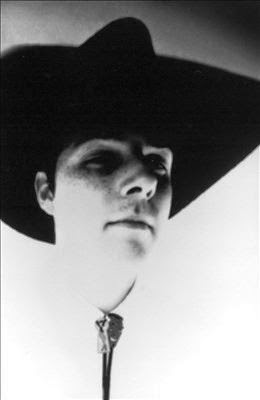
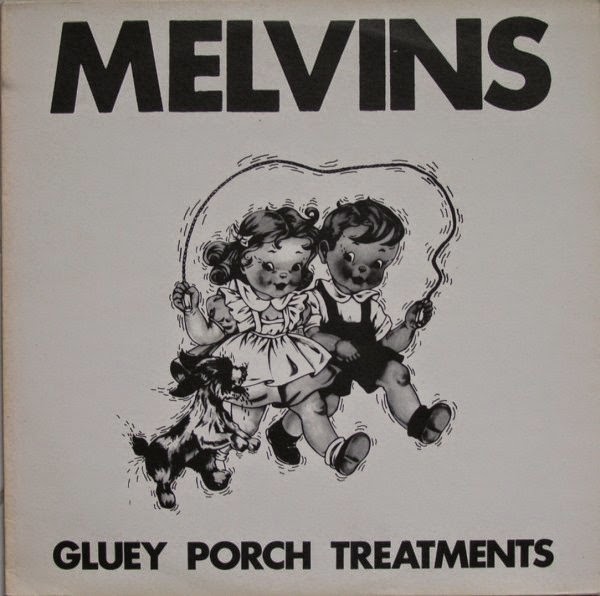
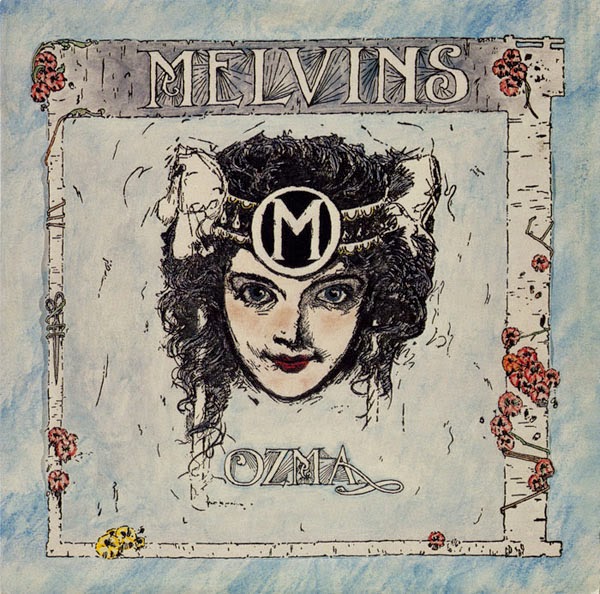
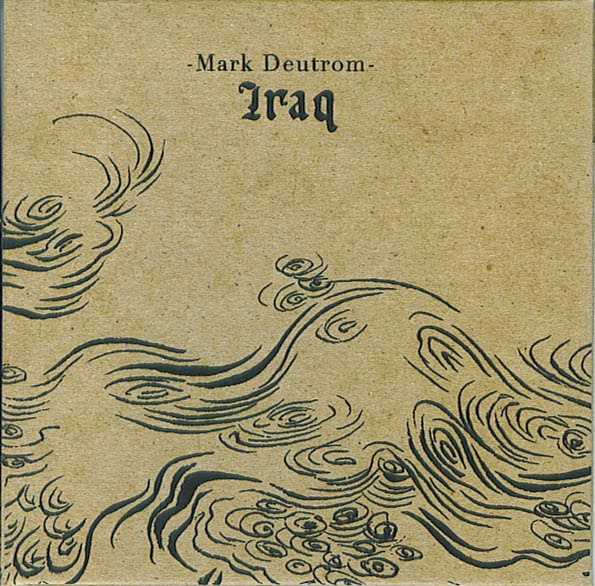
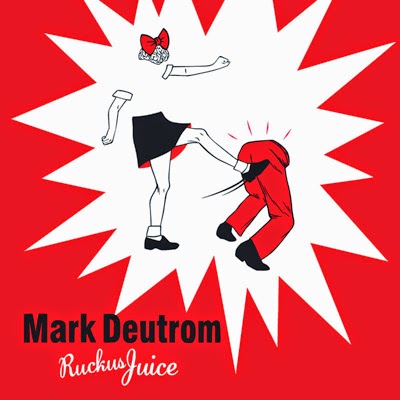
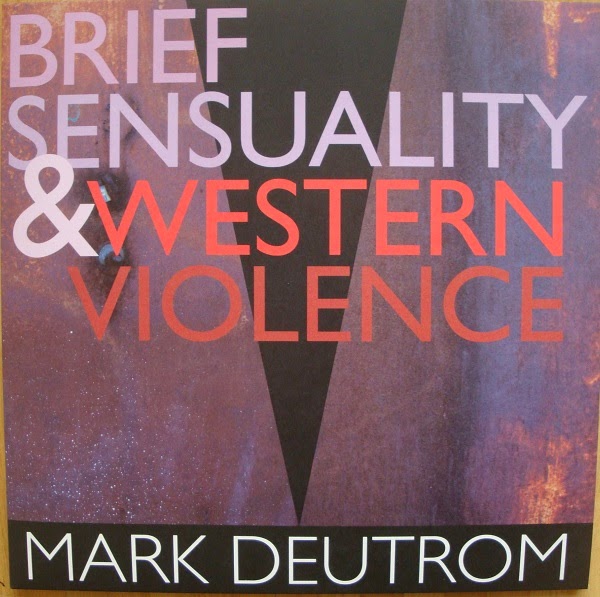
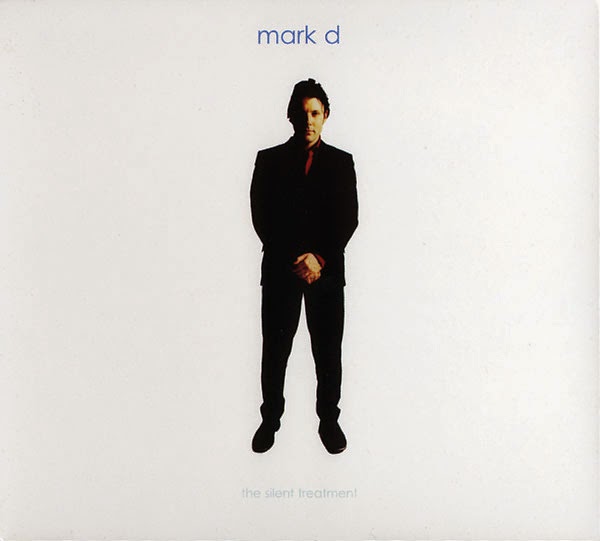
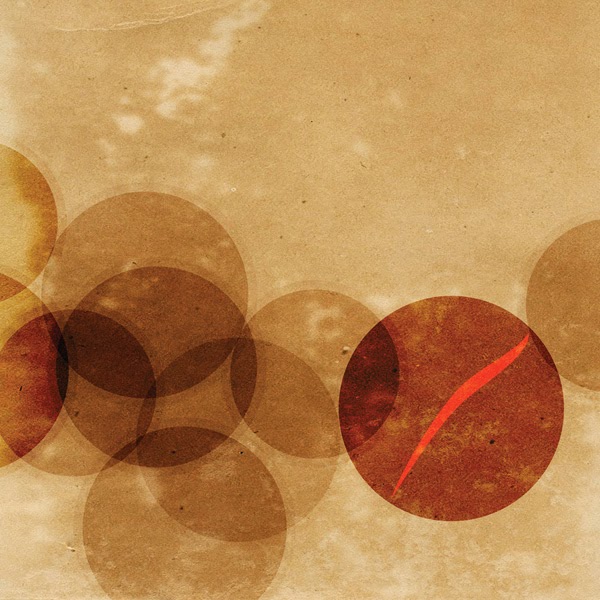
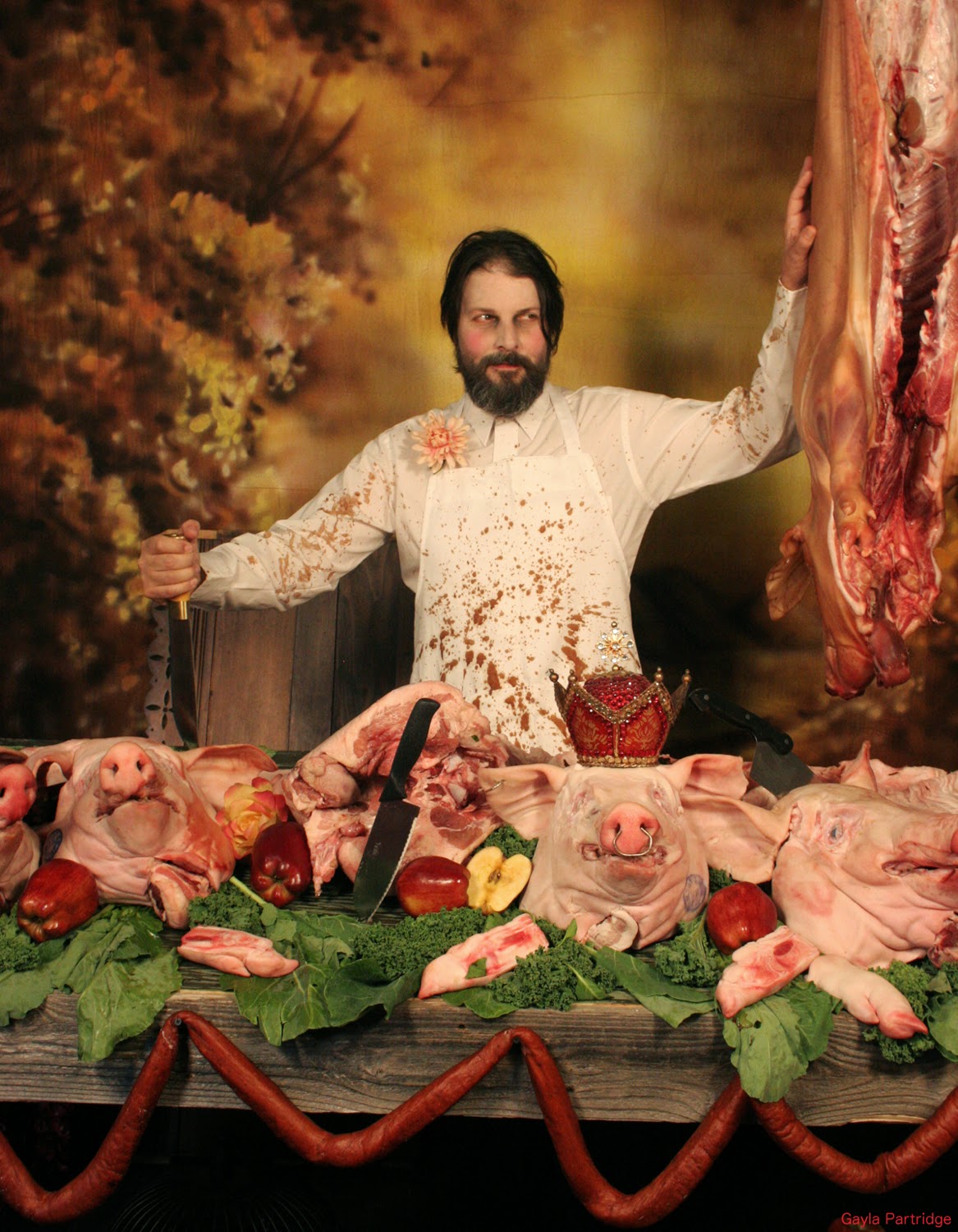.jpg)
-0.png)
-0.png)
-p190cec5gd9931ifujb15215-0.png)
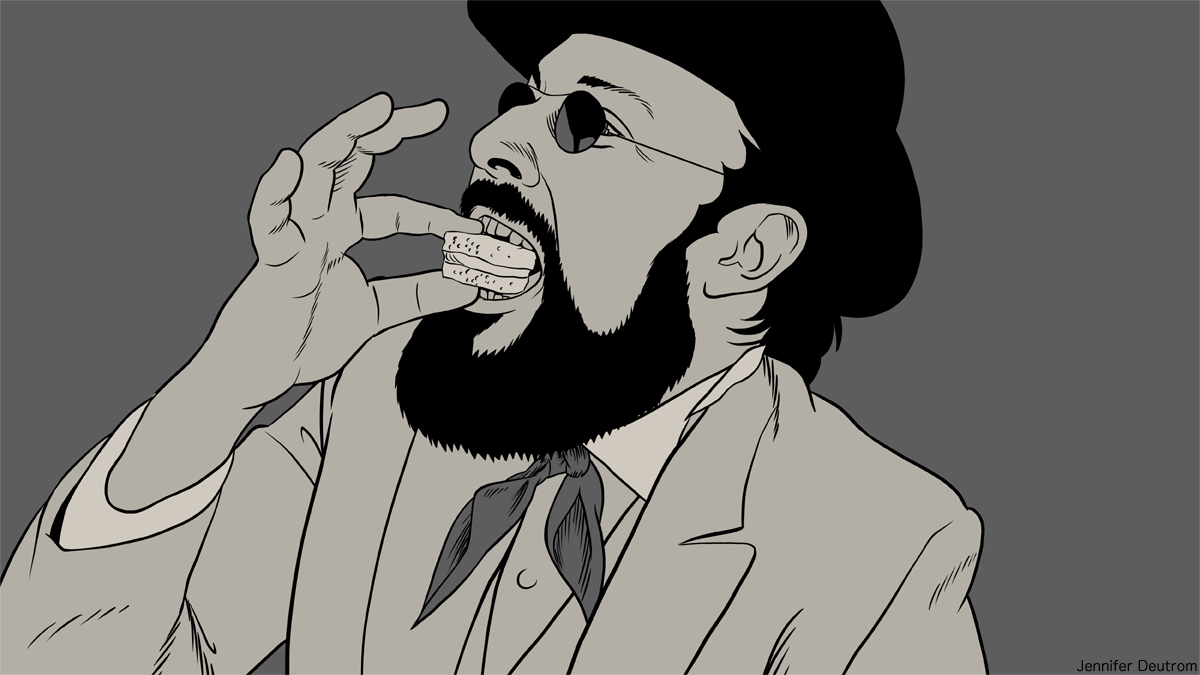-0.png)

